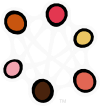
What training does Science of Teams provide?
We provide training in teamwork which is based on extensive scientific research into team performance. We offer a structured set of training modules which are delivered using multiple learning modes, emphasising participant experience to maximise impact.
What is different about this training?
Workplace training is often focused on individuals and individual performance. Teams have distinct properties from individuals, however, and Science of Teams material recognises this.
Secondly, where some team training programmes are based on sporting or military teams, Science of Teams training is based on research into workplaces, where the findings are directly applicable to your teams. We take the strongest research findings on workplace team performance and build our training modules around them.
Who should attend?
Team leaders, project managers, senior team members, human resources staff … anyone who has influence over workplace teams.
What will our people learn and experience?
Your people will be given new ways to understand their teams and, therefore, have new ways to help their teams improve.
Prior to the training each participant will be sent an outline of the training day, with questions to think about.
During the training, participants work in teams to experience what is being taught in the training material. Participants undertake numerous exercises in collaboration, helping them to use and embed new knowledge and techniques. Theoretical content is grounded with real-life stories, videos, and participants sharing their experience.
What happens after the training
We can also provide follow-up coaching for participants, to help them apply what they’ve learned to their work context and significantly improve the effectiveness of the training. This typically takes the form of one-to-one coaching sessions, or we can tailor a coaching programme to your needs.
Core Modules
What is a team?
A brief introduction defining what a team is (which is used as a platform for the other modules).
Teamwork is not Groupwork
How does the work of the team affect the performance of the team?
Team development models
How do teams change over time (and how can this knowledge be used to make teams more effective)?
Team leadership
How can we enable great teamwork?
Cohesion
What makes teams stick together, and helps them be effective?
Extension modules
Team Climate
How we should be working in the team, and why we do it this way.
Team Conflict
How can conflict in teams be a good thing (if we do it right)?
External relations
How can we to manage the team’s boundaries, and its relations with other groups?
Motivation effects
What happens when people work in groups (and how to get the most out of this)?
Leading teams
“How do I build a team that is greater than the sum of its parts?”
In this half day workshop we give you the tools and the understanding to build and lead teams.
You will learn how leading teams is different from leading a collection of individuals. A real team has:
- A task which requires interdependence of team members
- Clarity about who is in the team
- Stability of membership, to form interpersonal bonds, mental models, and collective memory
- Enough autonomy to empower the team to complete its task
You will learn the needs of effective teams, and how to meet those needs in your own team:
- A goal which focuses the team’s attention and effort
- The right people in the team, intrinsically motivating work, and rules for how the team should behave
- In the broader organisation, having reward structures, information systems, and educational resources that support the team
- Coaching which focuses on task performance
We will cover some common problems in teams, and the right strategies to deal with each:
- Conflict
- Difficult team members
The workshop is available as a full day version (as above) and as a half day.
Team Gym
Get your team to the gym!
Your organisation relies on people working in groups. Leading working groups wisely can make a difference to how well projects work, the experience of team members, and the health of the organisation as a whole.
This session is focused on how the team works, and how the team can work better. From our experience working with teams, and the empirical evidence about what makes them effective, we can help you set up teams that people enjoy being in, and that get good results.
In half a day we can help to set your team on a course so they will stick together, work together, and lead together.